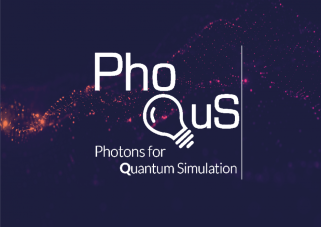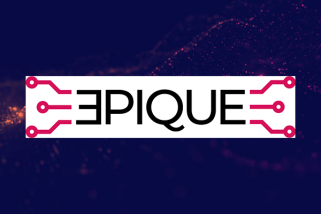CSA Projects
InCoQFlag - International Cooperation on Quantum Technologies
Europe has strong expertise in Quantum Technologies (QT) development, hosting world-leading researchers from Basic Science to all QT scientific domains: Quantum Sensing and Metrology, Quantum Communication, Quantum Computing and Quantum Simulation.
The Quantum Flagship International Cooperation on Quantum Technologies InCoQFlag project aims at identifying the win-win situations in terms of collaborations with countries investing massively in Quantum, such as the United States of America, Canada and Japan. Combining the same level forces to reach critical mass to cope with targeted challenges, or selecting complementary competencies to investigate the same objective, are two different approaches to international collaborations.
The consortium is exploring types of collaboration that would help Europe structure the best framework for the development of quantum technologies, which would benefit economic value creation and the research community as a whole.
Sharing technologies, infrastructures, skills and knowledge with international partners are key steps in building win-win collaborations. To reach this target, InCoQFlag will organize within the next three years, several workshops and networking sessions between EU and non-EU academia and industry stakeholders, as part of the international collaboration meetings side events.
Access to content from past, public workshops.
- EU-Canada workshops (3 & 31 May 2021)
The InCoQFlag CSA consortium is composed of renowned research management organizations in the field of Quantum Technologies.
- The French Atomic and Alternative Energies Commission (CEA) is Coordinator of the CSA InCoQFlag and involved in all tasks of the project.
CEA is a prominent player in the European Research Area, with an internationally acknowledged level of expertise in many core competencies, from fundamental research to technology applications, and has been ranked the most innovative public research organization in Europe and ranked second in the world in the “Top 25 Global Innovators – Government” (Reuters, 2017).
- The Netherlands Organisation for Applied Scientific Research, will be leading the WP1 (Science and Technology) identifying Europe’s strengths and possible needs in complementary competences in quantum technology.
TNO is a Dutch independent research institute with the mission to connect people and knowledge to create innovations that boost the sustainable competitive strength of industry and the well-being of society.
- National Science Centre, Poland will bring its expertise to WP1 in mapping QT policies and funding schemes.
NCN is a governmental agency with over 8 years of experience in organising calls for research proposals, both at national and international level. NCN is the Coordinator of the QuantERA ERA-NET Cofund in Quantum Technologies – a network of 32 agencies, established in 2016 in the field of Quantum Technologies (QT) cofunded by Horizon 2020 Programme.
- ICFO – The Institute of Photonic Sciences will be leading WP2 (European roadmap for International Cooperation and Networking events), coordinating the development of the roadmap document as well as organizing networking events to strengthen the international cooperation.
ICFO, founded in 2002, has research lines that encompass diverse areas in which photonics plays a decisive role, with an emphasis on basic and applied themes relevant to medicine and biology, advanced imaging techniques, information technologies, a range of environmental sensors, tunable and ultra-fast lasers, quantum science and technologies, photovoltaics and the properties and applications of nano- and quantum materials. In addition to two consecutive accreditations of the Severo Ochoa national program for research excellence, ICFOnians have been awarded 15 elite ICREA Professorships and 37 European Research Council grants. ICFO participates actively in the Quantum Flagship and is very proactive in fostering entrepreneurial activities, spin-off creation, and creating collaborations and links between industry and ICFO researchers. To date, ICFO has helped create 7 start-up companies.
This project has received funding from the European Union’s Horizon 2020 research and innovation programme under grant agreement No 952223.



